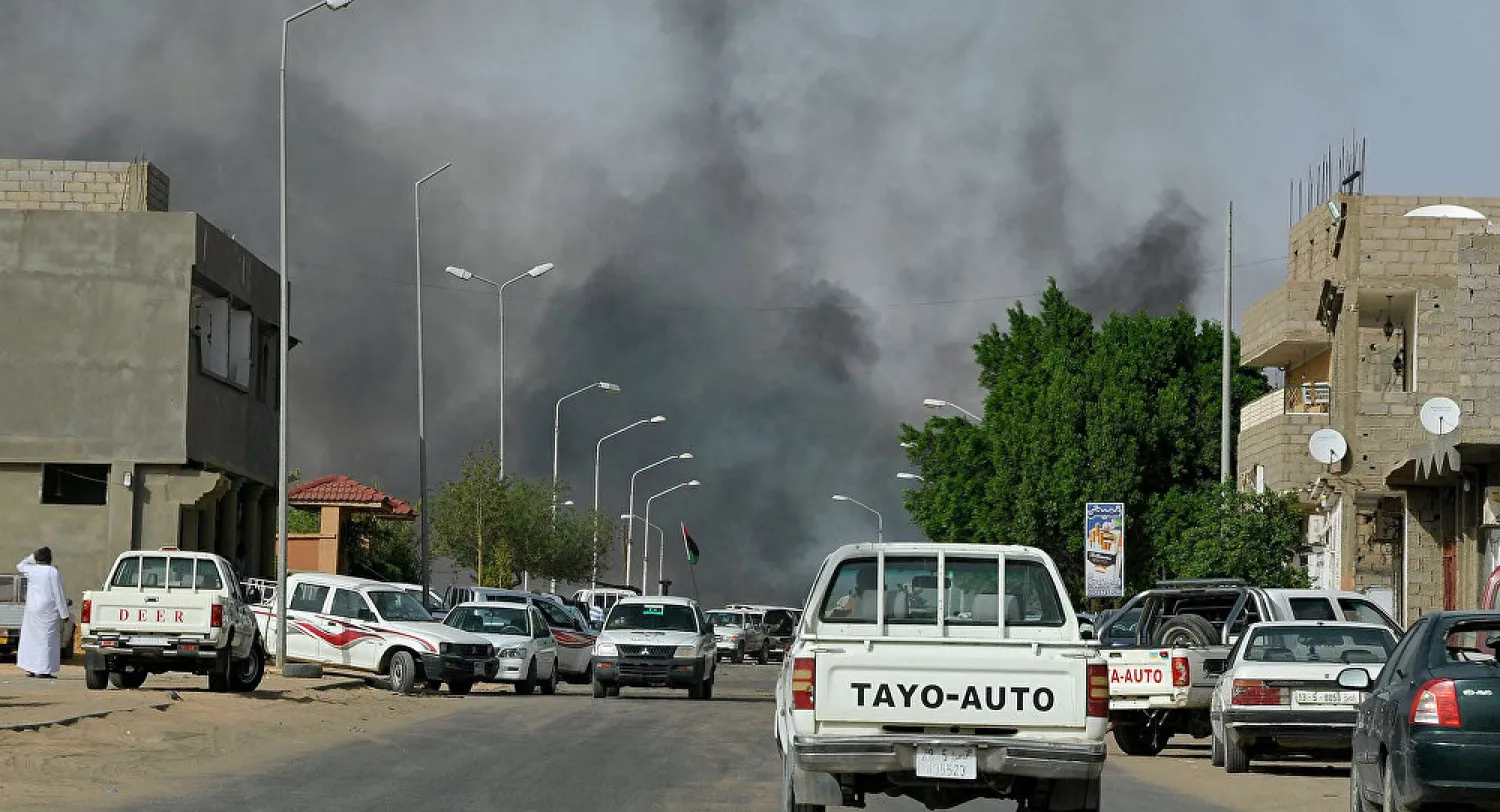High Council of State (HCS) announced on Wednesday its chairman Abdulrahman al-Sweihli survived an assassination attempt.
The media office of the Council reported that Sweihli and members of his accompanying delegation were ambushed during his visit to the cities of Gharyan and Yefran by an armed group of "al-Karama" in the area of Thaher al-Jabal.
Meanwhile, Asharq Al-Awsat learned that the sixth negotiation meeting aimed at unifying the Libyan military will be held in Cairo, Egypt, under the auspices of the Egyptian authorities next week.
The convoy of Sweihli was ambushed and came under fire in Guwalish district while en route to visit Yefren town after visiting the city of Gharyan on Wednesday.
"Our security personnel in cooperation with the Gharyan security department as well as those of the western military zone helped thwart the attack. The attackers ran away, while two of our security personnel were injured and four Gharyan policemen were kidnapped," HCS media office said in a statement.
HCS Head and delegation went on with their visit destination despite the ambush and thanked the Gharyan, Yefren and western mountain areas' dignitaries councils for their reception.
No one claimed responsibility for the latest assassinate attempt, knowing that over the past two years several senior officials were subject to similar assassination attempts.
On Wednesday, Sweihli met with a delegation of commanders and officers of "al-Bunyan al-Marsous" operation, against terrorist organizations in the coastal city of Sirte.
Meanwhile, a Libyan military official told Asharq Al-Awsat that officers from different military areas will return to Cairo next week to complete discussions on the definition of the high commander of the Libyan armed forces, noting that there is an agreement that Marshal Khalifa Hafter remains the commander-in-chief of the national army.
During Cairo negotiations, the National Army's delegation wants the army's supreme commander to be the commander-in-chief, while the group of officers negotiating on behalf of Fayez Serraj's government wants the next political authority to be in charge, according to the official who spoke on condition of anonymity.
Prime Minister of Government of National Accord (GNA) Serraj, preceded Cairo meetings with a new resolution appointing Abdul Basset Marwan commander of Tripoli's military district, after he was promoted from Brigadier General to General.
On the other hand, Serraj said that the Electoral Commission continues to prepare for the presidential and parliamentary elections, which the UN mission plans to hold by September.
The Prime Minister's remarks came during a meeting in Tripoli with Italy's ambassador to Libya, Giuseppe Perrone, who renewed his country's support for what he called "Serraj's compromise approach" and his efforts to achieve security and stability in Libya.
A statement issued by Serraj's office reported the Italian ambassador's support of the efforts of UN envoy Ghassan Salama, hoping that they will lead to the elections this year.
Meanwhile, British Ambassador to Libya Frank Becker, who also met Serraj in Tripoli, renewed his country's commitment to supporting the efforts of Serraj to achieve stability in Libya.
A statement issued by the United Nations Support Mission in Libya (UNSMIL), expressing its concern about the deteriorating security situation in southern Libya, drew wide criticism.
UNSMIL said it is concerned by the ongoing violence in Sabha and calls on all parties to refrain from acts that endanger civilian lives and contribute further to the destruction of Libya’s infrastructure.
"Buildup of armed forces in the South risks further escalation and calls on all parties to work towards a ceasefire agreement, advance dialogue and reconciliation efforts, and refrain from rhetoric that may inflame the situation," the Mission warned.
In an unrelated matter, Libya's top prosecutor al-Sadiq al-Sour announced efforts to deliver the remains of Egyptian Christians who were killed in Sirte in February 2015 by ISIS militants. He also discussed Libyan fuel smuggling to Europe, and involvement of Libyan security elements in the killing of 600 illegal immigrants.
Sour pointed out that the Libyan authorities received a request from Egypt's Attorney General through Libya's Foreign Ministry for judicial assistance, in analyzing the remain.
Libya's top prosecutor says criminal groups are smuggling Libyan fuel on board fishing vessels to Europe. He told reporters on Wednesday their investigations revealed that smugglers use sea routes to move subsidized fuel from the western coastal cities of Zuwara and Zawiya to Malta, Italy, Turkey, Spain and Greece.
Sour indicated that hundreds of fuel stations are involved in the smuggling of their portions of subsidized diesel and that smugglers have made at least $100 million in the past three years.
Sour also discussed the case of Osama al-Jidran, brother of the former oil-field commander of the central region Ibrahim al-Jadran, indicating Osama is wanted for cases related to terrorism..
The top prosecutor concluded that Saif al-Islam Gaddafi's case is being discussed in the Court of Appeal, without going into further details.









